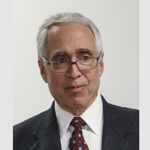VP Choice Is a Safe Bet

ice presidential candidates Richard Cheney and Joseph Lieberman may not agree on much, but they share a deep commitment to good government. Search as one might for irresponsible legislative votes or a lack of respect for public service, the two candidates have nearly perfect records on the big government management reforms of the past 20 years.
Cheney has the best good-government resume on either presidential ticket, including George W. Bush and Al Gore. As a member of Congress from 1979 to 1988, he voted for every bill that would reduce paperwork burdens on the American public; expand the war against federal fraud, waste and abuse; and require greater competition for government contracts. As Defense Secretary from 1989 to 1993, Cheney led the government's largest department through the end of the Cold War, orchestrated the victory in the Persian Gulf, and implemented a radical downsizing of the military, civilian and contractor workforce. Along the way, Cheney did more to increase public confidence in the nation's military than any single leader in the past 30 years.
Cheney's record has its question marks, though. Cheney voted twice against the law creating independent counsels that eventually led to President Clinton's impeachment in 1999. Convinced that the independent counsels had abused their power to investigate trivial abuses during the Carter administration, Cheney joined a mere 36 House members to oppose the law in 1982. This appears to be an extreme position based entirely on his belief that the law had been unfair to a Democratic, not a Republican, President.
History proved Cheney right, however. Having witnessed one fruitless investigation after another in the 1990s, Democrats and Republicans alike joined to let the independent counsel law die in 2000.
If no one on either ticket can match Cheney's federal management experience, no one on either ticket can match Lieberman for legislative leadership on government reform. Like Cheney, Lieberman voted for good government at every turn, including reauthorization of the Paperwork Reduction Act that Cheney supported in 1979, as well as laws that encourage agencies to focus on results, establish new disclosure requirements for lobbyists and improve federal financial management.
Unlike Cheney, who did not sit on a major reform committee, Lieberman is the senior Democrat on the Senate Governmental Affairs Committee, which is the source of the most important management reforms of the past quarter century. Lieberman has put his name on dozens of proposals, including recent ones to improve government information security and streamline the federal bureaucracy.
Lieberman's record also has its question marks. Lieberman voted against the Unfunded Mandates Act in 1995, joining most of his fellow Democrats in a series of failed efforts to derail the centerpiece of the Republican Contract With America. The law, which passed despite Democrats' efforts, made the effects of federal mandates on state and local governments far more visible. Having entered the Senate after 20 years in Connecticut state government, Lieberman shared Republican concerns about the cost of federal mandates. But he opposed the notion of protecting state and local governments from rules that private businesses had to follow, particularly when the two sectors were competing to deliver similar services such as garbage collection and childcare. He voted against final passage almost entirely to protect the private sector.
No matter which candidate is elected, Cheney or Lieberman would bring desperately needed energy to Al Gore's reinventing government campaign. Reinvention has run out of steam. The Vice President has been out of touch for the better part of two years while campaigning. All but a handful of the original reinvention staff has retired, moved to Gore 2000 headquarters in Nashville or returned to academe. With the Republican House and Senate preoccupied with campaign finance scandals and impeachment for four years now, the reinventors have abandoned all hope of legislative action.
Cheney and Lieberman would bring different strengths to a new reinven- tion campaign. Cheney would be the logical candidate to flatten the overlayered federal hierarchy. Having implemented the first military base closings following the end of the Cold War, he knows more about downsizing than anyone in Washington. Cheney also knows something about making government agencies work together. Anyone who could get the Army, Air Force, Navy and Marine Corps to cooperate for 100 hours during the Gulf War just might stand a chance of making that happen with the rest of the federal government.
Lieberman would be the logical candidate to rebuild the public service. He has spent 30 years in the public service and has a powerful vision for the future in his book, In Praise of Public Life. Moreover, he already has co-authored a variety of bills to improve the public service, including one to create a national commission to restructure the federal bureaucracy and another to reduce the burdens facing presidential appointees.
This is one election in which good-government advocates truly can have their cake and eat it too.
NEXT STORY: Purchasing IT as a Utility







